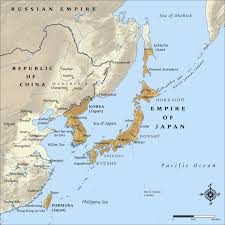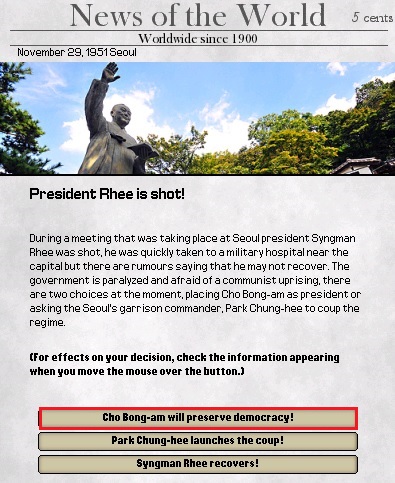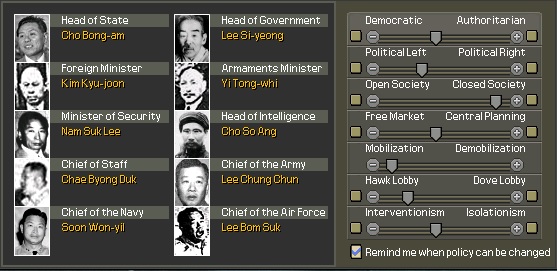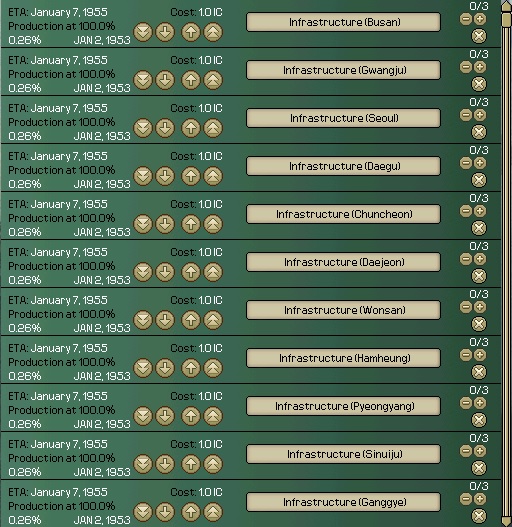Chapter IV: Beyond our Hanguk. (Part II)
"On Aug. 19, 1953, Prime Minister Mohammad Mossadegh of Iran became the first victim of a C.I.A. coup..." - Stephen Kinzer, american journalist and author.
-----------------------------------------------
Teheran, Imperial State of Iran. ~ August 19th, 1953.
Farid couldn't believe what he was seeing, days ago the chaos started through the capital, first the Shah proclaimed the dismissal of Mossadegh and then the whole mess begun. The whole city seemed to be divided, parts of the population were supporting Mossadegh mostly because his actions and ideology won over the supposed loyalty towards the Shah, however, the majority of the people and also most of the army chose to follow the Shah's decree.
It was evident for everyone, Mossadegh would be finished when all of this affair ended up. Even those supporters from the Tudeh Party knew that, Amir tried to convince Farid to join the struggle, however, he was unable to do so. Not because Farid was loyal to the Imperial State, nor to the Shah, he only wanted to stay safe and he wished that also for his own family.
"Amir, you should stop going around with those Tudeh party members, they are Soviet spies and everyone agrees on that. You are risking yourself and your family and for what? There's no point in trying to stop the Westerners, they'll succeed and we'll have to accept the results." - he really tried to stop Amir's revolutionary activities, he felt something awful could happen to him and their families.
But that wasn't effective, no, it wasn't.
After walking for some minutes down the street, trying to get home and away from the hot-zone as fast as he could, he stumbled upon a corpse Someone young, someone quite familiar to him...
"Farid, I don't think you'll ever understand this. But if we bow down today, they'll keep repeating the same things one time and another, over and over again. It will be a humilliating cycle, it will never end, that's why we are fighting. We do not expect to free Iran today, we do not expect it to be free from the Western Devils tomorrow but we certainly hope to have a free country in the future." - that was the last time he spoke to Amir and now he was right in front of him, dead.
-----------------------------------------------
Stabbing Iran's Democracy. - Atena Kaivani.
The nationalization of the oil caused the Abadan Crisis and this single event would eventually influence several more down the road for the country. The internal situation of Iran developed in such an interesting way, during some months it seemed that Mossadegh would succeed in his plans and then, the Americans and the British started to apply pressure against the country, slowly chipping away the support Mossadegh won over the time.
Eventually, Ahmed Ghavam took power as Mossadegh left the government. That was the spark for the anger that followed, he left the government by Summer of 1952 and as soon as he left his post as Prime Minister the population in Teheran quickly chose to act. Three days of continuous strikes started, the reason was Ahmed Ghavam's rise to power. And it wouldn't last, under pressure from the United States and the United Kingdom, Mossadegh was accepted once again in the government.
It's important to understand, both countries were still rejecting Mossadegh, however, they also wanted to keep some sort of stability over the country and replacing Mossadegh in such way was just, too much for the population. They also needed to be careful, a wrong move could end up involving the Soviet Union in such a strategic location of the Middle East; that's why bringing back Mossadegh was seen as the most sensible option.
The government was in a precarious position and recently published archives reveal that Mossadegh tried to get Soviet support, however those files seem to be manipulated by the post-coup government.
By 1953 everything was apparently quiet, but the reality was quite different. The Americans along the British were working on their own plan to get rid of Mossadegh and his nationalist government, they even started with a propaganda campaign in order to discredit the Prime Minister. Everything was going according to the plan, however, by August 4th it was evident that something would suddenly take place.
Mossadegh already knew about the plan to coup the government, therefore he decided to hold a referendum to get the parliament dissolved. General Zahedi, the main figure in the coup went into hiding after the initial coup on August 15th failed, but the Shah also chose to flee eventually going to Baghdad.
It seemed to be over, Mossadegh remaining in power while his two main enemies were forced into hiding or exile, but the CIA had other plans.
General Zahedi proclaimed himself the rightful prime minister of the country, a claim reinforced by several photographs depicting the royal decrees banishing Mossadegh and appointing Zahedi, eventually, the tide turned once again. The CIA tried to stop the movements against Mossadegh but it was already late, supporters of the Shah along general Zahedi decided to come out against those sympathizers of Mossadegh and his national project.
General Fazlollah Zahedi, main figure of the coup against Mossadegh's government, he was named Prime Minister after the success of the operation.
A fight in the capital took place and eventually those forces supporting the Shah won the battle at the end of the day. It was the deathly stab Iranian democracy would receive from fellow democracies, August 19th, 1953 would remain known in Iranian History as the 28 Mordad coup. The name (for America) would later be known to be, Operation Ajax and Operation Boot for the United Kingdom.
Several countries were surprised at the ongoing events in the Middle East, first they saw the Egyptian Revolution topple the monarchy in the country, then the sudden coup against the Iranian government. Few nations chose to speak against the perceived "assault against democracy" and to surprise of American officials, one of them was the Republic of Korea.
President Cho Bong-am was one of the few country leaders to speak openly against the United States regarding the situation in Iran, something that would earn him America's anger down the line.
The coup against Mossadegh would be decisive for Iran's development, parts of the population got radicalized after it and it eventually contributed to the SAVAK's birth, the Shah's secret police.
-----------------------------------------------
Teheran, Imperial State of Iran. ~ August 19th, 1968.
Fifteen years passed since the tragic day known as the 28 Mordad Coup, Operation Ajax or Operation Boot. Fifteen years since Farid found the corpse of Amir, beaten and shot at the streets of Teheran, these were different days.
The Shah had consolidated his power over the country, his fist was the SAVAK and Farid was proud to be part of it. He was sorry for Amir's family, but he repeatedly told him to stop his revolutionary activities, he knew that the Soviets were the true enemy. He traded Amir and his family off to get something for his family, he eventually got his chance to join the SAVAK years after the coup.
Everything had paid off, but he couldn't feel innocent.
Amir's blood and his family's blood was on his hands, they never said what they would do, but it was obvious. These days were so different, the solid fist of the Shah controlled every aspect of the country along the SAVAK while the Americans were friends and the Soviets the true evil.
One day he would pay for his actions, but he was sure he wouldn't live to see it, how wrong he was...
-----------------------------------------------
Well, here is the new update!
I'm so-so-so (so x999) sorry for taking such amount of time to get it done, I've been so busy with university, projects and trying to stay mentally sane. 
But I'm getting closer to finishing up with classes so I'll try to return to the constant updates.
I hope you enjoy it and get ready, next update will probably be about the Soviet Union and their socialist "allies".
^^
(I'm also going to start making again some custom events to spice up 1954, it will probably be also a foreign-event year)




























.jpg)
.jpg)
.jpg)
.jpg)
.jpg)
.jpg)


.jpg)
.jpg)
.jpg)
.jpg)
.jpg)
.jpg)
.jpg)
.jpg)
.jpg)
.jpg)
.jpg)
.jpg)
.jpg)
.jpg)
.jpg)
.jpg)
.jpg)









































